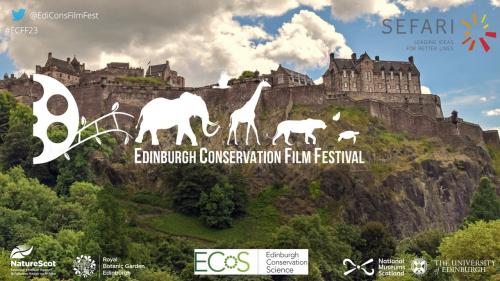Too often, biodiversity conservation news reporting focusses on negative stories with little regard to the amazing efforts being made to counter our diminishing resources and the associated successes seen in biodiversity conservation. We see our role, and that of the festival, as being a platform to show people these good news stories and help promote the values of the conservation optimism movement.
This year’s festival, made possible by funding from SEFARI Gateway as well as the founding partners Edinburgh Conservation Science (ECoS), was on the theme ‘Healthy People, Healthy Planet’ and the theme choice, was no accident. It was deliberately chosen to highlight a multi-disciplinary approach to conservation and planetary health that has been emerging in veterinary science, human medicine, plant science, social science, and conservation science; the ‘One Health’ approach. To explain what One Health is, why it is so important, and how the importance of human health is tied up with the health of our planet, the funders of the festival commissioned a film to be made and shown at the beginning of the festival, which you can watch here.
We asked filmmakers for fresh stories on the links between biodiversity and the health and well-being of people across the planet; be this physical well-being, mental health, climate security or economic stability. In, particular, we were looking for films that highlight the importance of biodiversity for all of us and convey positive messages of what we can achieve for the benefit of biodiversity conservation, as well as the health of our society. Our goal was for the festival to explore the global interconnectedness of all living things, highlighting our relationship with and responsibility for the protection and custodianship of life on Earth.
Of course, a film festival would be nothing without great films and we had some wonderful short films submitted. We received over 70 films from 19 different countries, from which we had to shortlist the final films that we would show during the festival. Each of the final 12 films were sent to our panel of judges to decide on category winners in ‘animation’, ‘aquatic’ and ‘terrestrial’, and the winner of each category was awarded £350. From these three winners, the judges selected an overall winner for the title of Best Film of the 2023 Edinburgh Conservation Film Festival, who received an additional £350 and the coveted award!
The judges are all independent and between them have an incredible array of expertise in conservation, medicine, and film making. We had Professor Mat Williams, the Chief Scientific Adviser for Environment, Natural Resources and Agriculture and Chair of Global Change Ecology at The University of Edinburgh; Dr. Gladys Kalema-Zikusoka, who sits on the leadership council of Women for the Environment in Africa, is the Founder and CEO of Conservation Through Public Health, the winner of the 2022 Edinburgh Medal for her work in Planetary health, and is generally an inspiration; Nicola Brown, a cross-platform impact producer specialising in natural history and conservation for shows such as Our Frozen Planet, and Our Blue Planet, and helps turn the beautiful imagery we see on our screens into conservation impact; Professor Julian Hector, a British television and radio producer and the former head of the BBC’s Natural History Unit; and Professor Christine Middlemiss, a Scottish veterinary surgeon and the UK’s Chief Veterinary Officer, who was able to join us on the night to announce each of the winning films.

Image: Judge photos in the same order as in the text
Having read all this, I am sure what you are really after is a way to watch the films themselves! I am happy to tell you that all the films are available to watch on-demand until Sunday 16th April 2023, at https://youtu.be/fOerybTMet0. After this date, some of them will remain available to stream via the festival website, so please do have a look.
Finally, I am sure you are keen to know who the winners are and I’ll keep you waiting no longer…
The winner of the ‘animation’ category was Autosaurus Rex by Marcel Barelli – an exceedingly humorous cartoon with a clever message, highlighting the danger of cars and fossil-fuels to nature and our well-being, and prompting us to consider how our choices can impact air, water, ecosystems and species. The judges praised the “clever and engaging story-telling with an animation technique perfect for the story being told. The last frame of the film is inspired and powerful”.
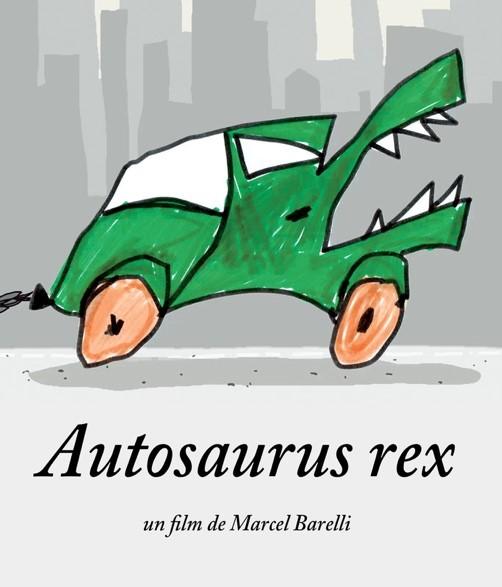
'Autosaurus rex' image clip
The winner of the ‘terrestrial’ category was Skin of the Earth by Ikram Ahmed Ahmed - A film that follows a group of growers in London who are embracing the restorative power that the soil holds. Skin of the Earth is a story about the relationship between humans, the land, and belonging. The judges praised the film for being, “such a simple film with a clear and fulfilling message. The filming is personal, reflective, and gentle. The messages are thoughtful, philosophical and engaging. The production is tight, airy, and full of light and summer. A truly excellent short film”.
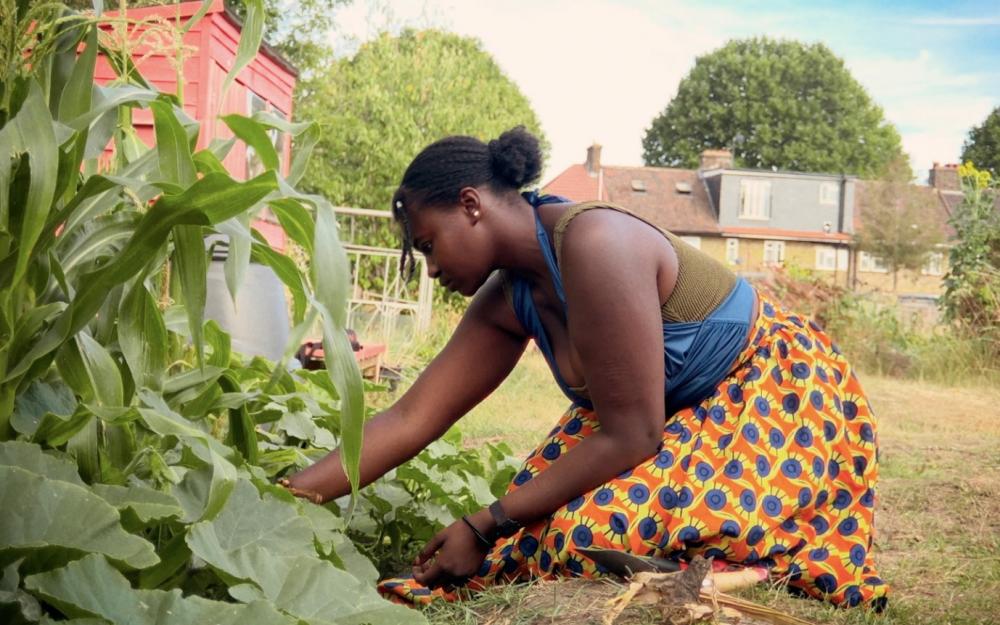
'Skin of the Earth' image clip
The winner of the ‘aquatic’ category was Give a Beach a Bottle by Max Romey – a beautiful story about cleaning marine plastic from the beaches of remote Alaska with some stunning artistry, in the form of water colour painting. The judges praised the film for being “beautifully filmed, with simple and compelling story-telling and the judges loved the use of graphics and artwork in this piece”.
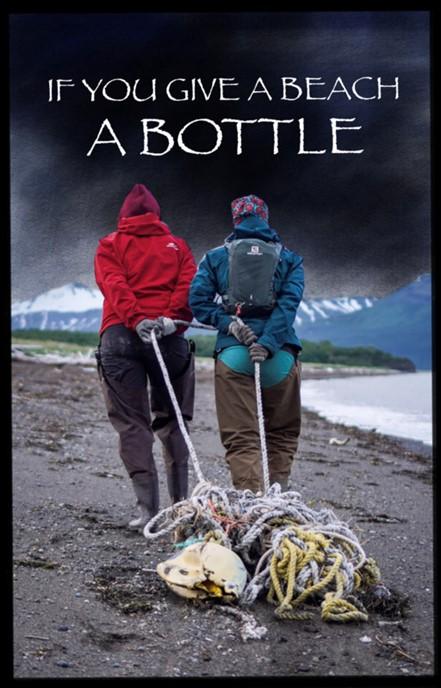
'If you give a Beach a Bottle' image clip
Before we get to our overall winner, we also gave one extra prize. Last year, we gave a small award to a film that, while not quite meeting the requirements of the theme, raised an issue that we felt should be highlighted and thus screened at our festival. That issue was the lack of equality, diversity and inclusion in conservation. This year, we showed a set of films that gave a giggle but also highlighted the growing issue of mental health and eco-anxiety. This award, for raising an important but often undiscussed issue which affects many of us, went to ‘On the Edge’ and their series of films called Animals in Therapy.
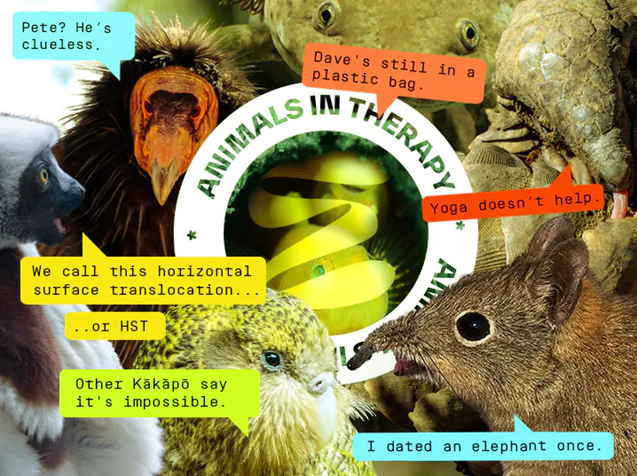
'Animals in Therapy' image clip
Finally the winner! Without too much fanfare but with many congratulations the best film of the 2023 Edinburgh Conservation Film Festival award was given to Marcel Barelli for Autosaurus Rex.
It was a wonderful evening of films that showed a glimpse of the many projects that are helping us preserve the wonderful biodiversity the surrounds us and supports the health of people and our planet. We can’t wait for the 2024 Edinburgh Conservation Film festival and hope you will be able to join us!
Simon Dures, The Edinburgh Conservation Film Festival Director.
